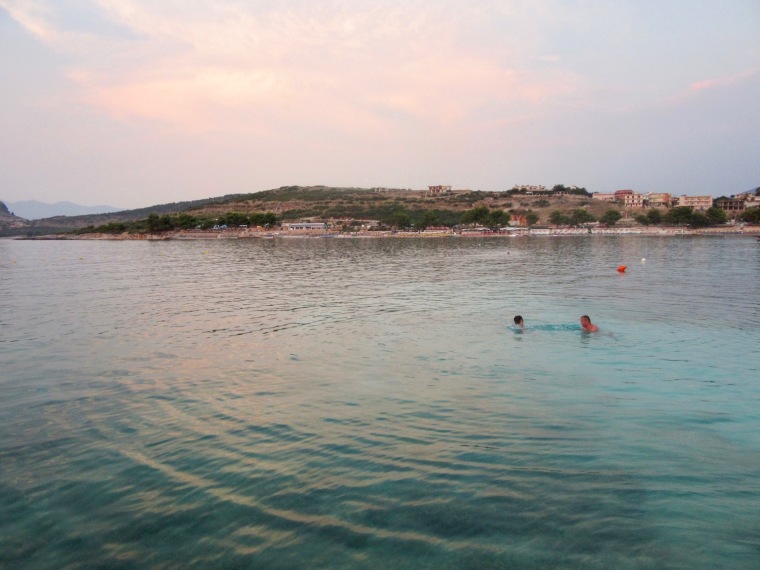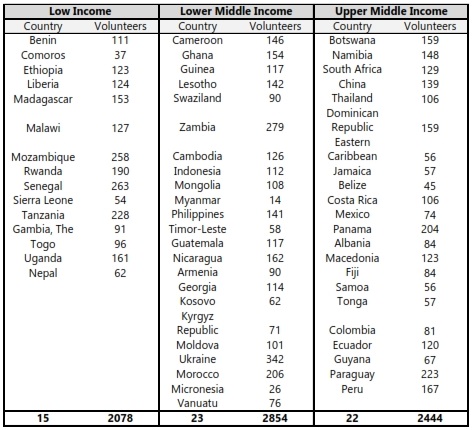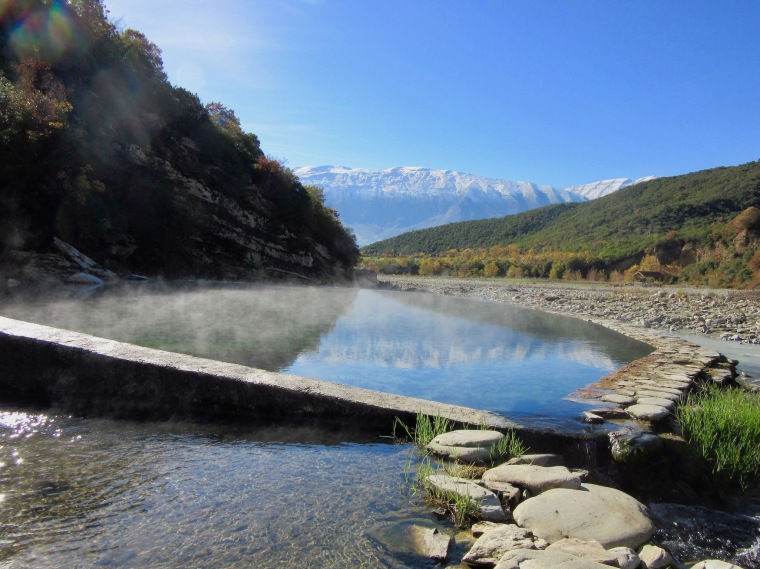When you think of the Peace Corps, a certain image probably springs to mind.

When I was a student, I thought joining the Peace Corps meant two years of mud huts, no electricity, and walking miles for a few liters of water. While I wanted to be the type of person who could take on that kind of challenge head-on and live a much simpler life, in my heart of hearts, I wasn’t sure that I could cut it.
But what I didn’t know was that the stereotypical Peace Corps volunteer experience was changing because the world itself was changing.
Defining “Posh Corps”

Posh Corps (päsh kȯr)
noun
1. A Peace Corps country or site that has electricity, running water, imported goods, and other amenities; Most Peace Corps volunteers in the Posh Corps have wi-fi.
adjective
2. Luxurious; She’s got a microwave and dishwasher! It’s a totally Posh Corps apartment.
Albania is considered by many volunteers to be a Posh Corps country. Most volunteers here have reliable electricity and Internet, hot water, private apartments, and supermarkets with American goods.
My home here in Permet is definitely not the mud hut I imagined, and in many ways my quality of life is better here in Albania than it was in the United States. I have shorter working hours, increased access to fresh, local produce, more time to pursue my hobbies, and plenty of walkable amenities right outside my door.
Does that mean I’m not getting the true Peace Corps experience?
The Changing Peace Corps in a Changing World

What exactly does “the true Peace Corps experience” mean?
In the United States, we have a tendency to group the world into two broad categories, developed and developing.
When you think of Peace Corps countries, the word “developing” immediately springs to mind, bringing with it all the associated imagery of poverty, disease, and hardship. But as Bill Gates has said, “Any categorization that lumps together China and the Democratic Republic of Congo is too broad to be useful.”1
A better way to look at our changing world is by dividing countries into four income levels. The World Bank classification uses Gross National Income (GNI) per capita as a measurement, and according to their system, the levels are defined below:2
- Level 1 low-income economies: $1,005 or less
- Level 2 lower middle-income economies: $1,006 – $3,955
- Level 3 upper middle-income economies: $3,956 – $12,235
- Level 4 high-income economies: $12,236 or more

Hans Rosling describes the differences in the different income levels in his book, Factfulness.3
Level 1 includes Peace Corps countries like Benin and Rwanda. People in Level 1 countries live in extreme poverty on less than $2 a day, and many sleep on dirt floors, fetch their own water, and cook over an open fire. About 1 billion people are in this level.
Level 2 includes Peace Corps countries like Guatemala and Ghana. The majority of the world’s people live in Level 2 countries where they get by on $2 to $8 dollars a day. Many have a bicycle or gas canister for cooking at home.
Level 4 includes countries like the United States and Germany. 1 billion people live on this level and make $32 a day or more. Most have running water, a vehicle in the driveway, and the chance to finish twelve years of school. Unsurprisingly, Peace Corps does not operate in Level 4 countries.
The good news: As the world changes, less and less people are living in extreme poverty on Level 1 and moving towards greater prosperity and health in Levels 2 and 3. The proportion of people living in extreme poverty is nearly half of what it was two decades ago!4
The bad(ish) news: If you’re an aspiring volunteer wanting to “rough it” in a Level 1 country, opportunities to have a stereotypical Peace Corps experience are going to be fewer and farther between.
A New Type of Service

When I crunched the numbers, I was shocked to learn that less than a third of all Peace Corps countries are in Level 1 (25 percent to be exact). With only 28 percent of volunteers serving in countries in which the average citizen lives in extreme poverty, the “true Peace Corps” experience is changing.
Albania, and many other Level 3 countries, can be considered Posh Corps. Many Level 2 countries have Peace Corps sites with Posh Corps amenities.
Today, the majority of volunteers have simple tools like gas canisters or small luxuries running water that make life easier even if their Peace Corps homes aren’t quite as plushy as their American houses.
Does that mean that Peace Corps is less challenging than it was a few decades ago?
I can’t speak from experience myself, since I wasn’t a volunteer when the program first began. But combing through the Reddit Peace Corps forum, I found this comment online to be particularly insightful:
In my youth, I served on the outer islands of Yap, in Micronesia. No toilets, no running water, no electricity, no cellphones (anywhere – it was the late 1980’s), slept in a hut on the floor, got mail every 3 to 4 months on a ship.
Second go-round – 2 years in Gori, a city of about 50,000 in Georgia. Lived in a flat with running hot and cold water, wifi, a shower, and a comfortable bed with a river running outside and a great view of the Caucusas mountain range. Really couldn’t get more posh corps, though the electricity did go out quite frequently and the heat was utterly inadequate in the winter. But still … posh.
And you know what? It didn’t make any difference to my experience. What mattered then, and now, is the work. If you integrate with your community, have positive relationships with your counterparts and host family, run meaningful projects, stay engaged – that’s all that matters. That is what will make the difference, not whether you can skype with your family or have to write them letters. It’s the work.
Pros and Cons of Posh Corps Service

As a volunteer in a Posh Corps country living in a Posh Corps site, here’s my take on some of the positives and negatives of Posh Corps service.
|
Pros |
Cons |
|
|
At the end of the day, every Peace Corps service is a “true Peace Corps experience.”
No one’s service is less valid because one volunteer has more amenities than the other. Every volunteer experience is unique, no matter what stereotypes exist. Physical and mental challenges exist in every Peace Corps country, and it’s impossible and fruitless to spend time arguing who struggled the most.
I love my Posh Corps site, though I’ll admit that there are times I’ve wondered how my life would have been different if I was sent to a Level 1 post. At the end of the day, I’m just grateful that I have the opportunity to serve at all.

This is one of my favorites of your posts! I loved that you took the time to do research and crunch numbers, and I think it’s so true that the hard part about living in Posh Corps countries is the conservative mindsets mixed with the modern amenities. I haven’t done Peace Corps (yet!), but I was a Fulbright ETA in Uzbekistan’s capital, Tashkent. It was challenging for me to be living in so much comfort and modernity yet be surrounded by very traditional practices and mentalities.